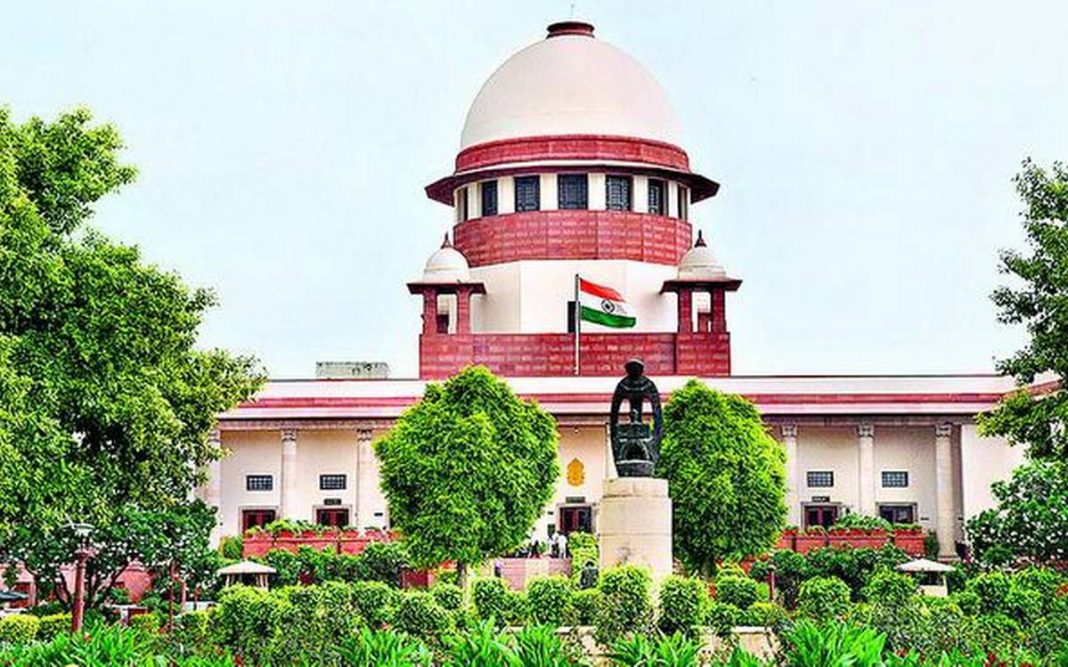Latest News
Judgement Analysis: Anuradha Bhasin V. Union Of India 2020 SCC ONline SC 25

Bench: Justice N. V. Ramana, Justice R. S. Reddy and Justice B. R. Gavai
Background:
In early August of 2019, guidelines were issued by the Civil Secretariat, Home Department, Government of Jammu and Kashmir for the tourists to make arrangements for returns and for the educational institutions and offices to shut their operations until further orders in the public interest. On 05.08.2019, Constitutional Order 272 was issued by the President, applying all provisions of the Constitution of India to the State of Jammu and Kashmir, and modifying Article 367 in its application to the State of Jammu and Kashmir. Following this, District Magistrate imposed restrictions under its powers under Section 144, CrPC and the distribution of newspapers was severely affected where no copy of the same could be distributed and the days forward it couldn’t be even published.
Issues:
- Whether the Freedom of Speech and Expression and Freedom to practise any Profession, or to carry on any Occupation, Trade or Business over the Internet is a part of the Fundamental Rights under Part III of the Constitution?
- Whether there was a violation of Freedom of the Press?
- Whether the restrictions imposed were valid under Section 144 of CrPC?
Arguments of petitioners:
The Petitioner Mr Ghulam Nabi Azad alleged that the instead of the powers there was arbitrary use of powers by suspension of all modes of communication including internet, mobile and fixed-line telecommunication services and he was restricted to enter and meet people of his constituency. And, in the interim orders giving relief to him for visit to his constituency it was directed to show all the issued orders in the period; while the defence of privilege that State can’t be directed to show all the orders is arbitrary and violative of rule of law. Furthermore, the orders of the restrictive movement were passed under Section 144 of CrPC at a time when there were no existent law and order issues. It was further contended that the restrictions can’t be placed against the whole State but to some community or group which is apprehended to disturb the peace.
The imposition of restriction of assessing to the Internet is provided under the Temporary Suspension of Telecom Services (Public Emergency or Public Service) Rules, 2017 which were clearly violated on the ground that there was non-application of mind and non-compliant with the procedure mentioned in the rules. The suspension based on likelihood danger to law and order would not stand good as neither was that an appropriate situation when the orders could be passed. Further, the Section 5 of The Indian Telegraph Act, 1885 allows for the least restrictive orders for obstructing communication channels but in the present case, there was a blanket order for the complete ban on communication channels and media.
Furthermore, after a few months of hearing, the interveners decussated on the claim of the Respondents that the restrictions being temporary were needed for national security but for more than 100 days had passed by since the restrictions were placed.
Arguments of Respondents:
The submissions made by the Counsel for Respondents majorly defended the orders of the executive by citing the background of terrorism in the State. To support the stance the council relied on the case National Investigation Agency v. Zahoor Ahmad Shah Watali, 2019 (5) SCC 1 where the situation was discussed at length. The Counsel added that around 106 citizen-friendly Acts were now applicable which would strengthen their Rights. The Counsel submitted that though Section 144 is applicable, there are hundred present relaxations and the restrictions are enforced on the ground when there is any threat to the lives of citizens. He corroborated it with the principle that Section 144 was preventive in nature and the restrictions could be justified given the maintenance of peace as the same was accorded in the judgement of Madhu Limaye v. Sub Divisional Magistrate, Monghgyr, (1970) 3 SCC 746. It was further submitted that the Court can interfere in the matters of executive orders regarding section 144 only to the extent of mala-fide intent on the part of officers.
The Counsel distinguished the two modes of transmission of news namely, the paper and the internet one and on that basis argued that the internet transmission is not like the paper one which is one way but messages are sent both the ways thus making it prone to a channel of spreading fake news leading to violence.
Judgement:
The bench over the issue of non-production of orders the Court laid its reasoning on the case of : Ram Jethmalani v. Union of India, (2011) 8 SCC 1 while corroborating with the Fundamental Rights under Article 19 which mandate the production of all the quantitative materials which may sound important to Petitioners for forming their case. The Court added that democracy allows free flow of information which needs to be respected in every sense subject to reasonable restrictions.
The bench over the issue of internet bifurcated it as a tool and as a medium of Freedom of Expression. The Court expressed the view over the Right to Freedom of Expression as one, where a person can express himself as wide section as possible and if restricted then the state needs to justify its action while taking reference from Indian Express v. Union of India, (1985) 1 SCC 641 and pointed out the Freedom of the Print Press as a Fundamental Right. The Court added that with the evolution, the general medium of expression through print media has been taken over by technology thus making it a medium to exercise Freedom of Speech. It is also recognised in major cases like Secretary, Ministry of Information & Broadcasting, Government of India (1995) 2 SCC 161 whereby recognising the Freedom of Speech and Expression through internet as a part of Article 19(1)(a) and subject to reasonable restrictions under Article 19(2) of the Constitution. In the furtherance of it, the Right to Freedom of Trade under Article 19(1)(g) the Trade through the internet is also protected as a Fundamental Right. Though the Court refrained from expressing the Right to Assess the Internet as a Fundamental Right.
However, if the freedom is given it is subject to reasonable restrictions but can’t be completely prohibited. Keeping given the current and past trends in the incidents of terrorism and buying the fact that the modern terrorism lies heavily on the internet the restriction should be subject to the test of proportionality, in the sense that some websites may be allowed to be assessed including medical, e-banking and essential services and other relaxations subject to continuous reviews.
Document:



































































































